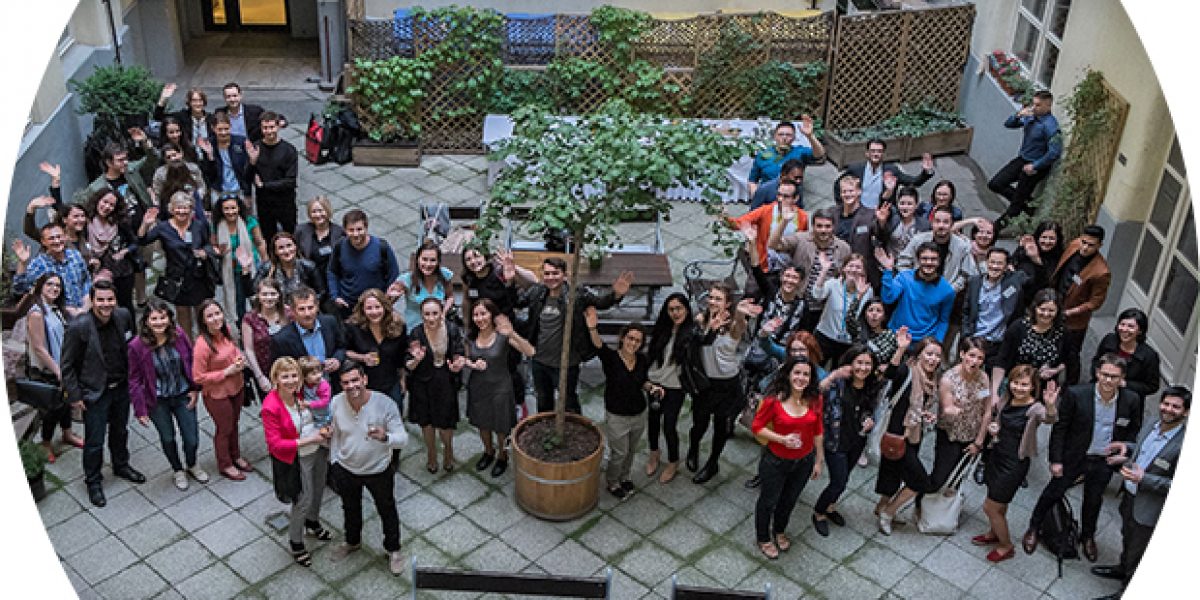
The School of Public Policy (SPP) was founded in 2012 with the mission of integrating practical experience of policy formulation, policy implementation, and the policy world with theoretical knowledge and conceptual learning. Would you like to jump on the train and become part of a new generation of policy actors, advocates, and activists? Learn more about the school’s opportunities from the currently acting dean, Julia Buxton.
Q: There are a number of public policy schools in the world. How is SPP different?
Julia Buxton: The School of Public Policy is grounded in a commitment to rights-based approaches and is a truly global institution with students from almost 60 countries. This diversity is integral to our view that there is no ‘one size fits all’ approach to addressing the vital public policy challenges that we face today or for advocating effectively for policy change. Context matters and we must learn from the diversity of experiences to improve policy processes. SPP is a new and especially dynamic institution. We are constantly innovating in our programs; offering flexible pathways and specialisations, and expanding our curriculum to include more courses related to, for example, media and journalism, security, human rights, and development, and with a greater focus on South America, the Middle East, India, and China. We place a strong emphasis on practice, which is to say learning from an application and not just academic kinds of literature. The School boasts a team of outstanding resident faculty made up of top researchers and practitioners in the public policy field who bring a wide array of academic and practical expertise to the classroom. SPP is also home to two policy research centres (the Shattuck Center on Conflict, Negotiation and Recovery and the Center for Media, Data and Society) and the Global Policy Academy, which offers short professional courses.
Q: What academic programs do you offer?
Julia Buxton: SPP offers a two-year practice-oriented Master of Public Administration (MPA) degree, a one-year theory-focused MA in Public Policy, and the two-year Mundus MAPP program, which provides for the second year of study in York (in the UK) or Barcelona, Spain. SPP also offers the public policy track of the University’s Doctor of Philosophy in Political Science program.
Q: How does SPP prepare students for careers in public policy?
Julia Buxton: Public policy requires individuals with sharp and pragmatic minds, a firm grasp of core competencies, and a critical edge to address the host of complex and increasingly transnational challenges of the current period – and to do so in a way to maximize good and minimize harm. Our graduate programs support students to develop the skills they will need to identify, define, and address problems, encouraging them to think creatively while grounding their learning in a strong knowledge base. We encourage a practice-oriented, applied approach, framed by training in research, policy, and project design, incorporating impact assessment, monitoring, and evaluation. Through a mixture of labs, interactive seminars, study trips, and computer-based learning, students develop proficiency in gathering, analyzing, and interpreting quantitative and qualitative information. Strong emphasis is placed on developing interpersonal and communications skills, in particular, capacities for listening, decision making, teamwork, resolving differences, and expressing ideas. Because our student body is drawn from across the globe, SPP is able to provide a wonderful environment for engaging with diversity, understanding the contested nature of public policy priorities, and questioning traditional, largely western policy paradigms and processes. At the end of their studies, our students have the capacity and confidence to challenge established. assumptions.
Q: What types of careers do public policy alumni pursue?
Julia Buxton: Public policy alumni work in international development, human rights advocacy and protection, risk analysis, and change management. They serve as gender advisors, partnership managers, monitoring and evaluation specialists, and national development strategy advisors. Some of our alumni are active in non-profit organizations. Others drive social enterprises. Still, others promote social and economic justice, head national electoral commissions, or provide strategic advice to regional and national officials. A smaller percentage pursue further academic study.
Q: What criteria do you use to select students?
Julia Buxton: We look especially for applicants who desire to work for the public good, demonstrate emotional intelligence, and possess a high aptitude and passion for learning both in and out of the classroom. Previous professional experience is always welcome, as are ‘non-traditional’ backgrounds.
Q: Does CEU offer scholarships for students from the Balkans?
Julia Buxton: Central European University and our School award financial aid on the basis of academic merit, commitment to public service, and also geographic location, the latter intended to support the diversification of our student body. Our South Balkans Scholarships are awarded to students from Albania, Bulgaria, Former Yugoslav Republic of Macedonia, Greece, and Kosovo who are interested in studying in our two-year Master of Public Administration (MPA) program. The application deadline for all students wishing to be considered for financial aid is February 1.
Q: Where can I find information about how to apply?
Julia Buxton: The best resource is our website, spp.ceu.edu. If you can’t find answers to your questions there, email sppadmissions@ceu.edu. We can also be reached on Facebook and Skype.





